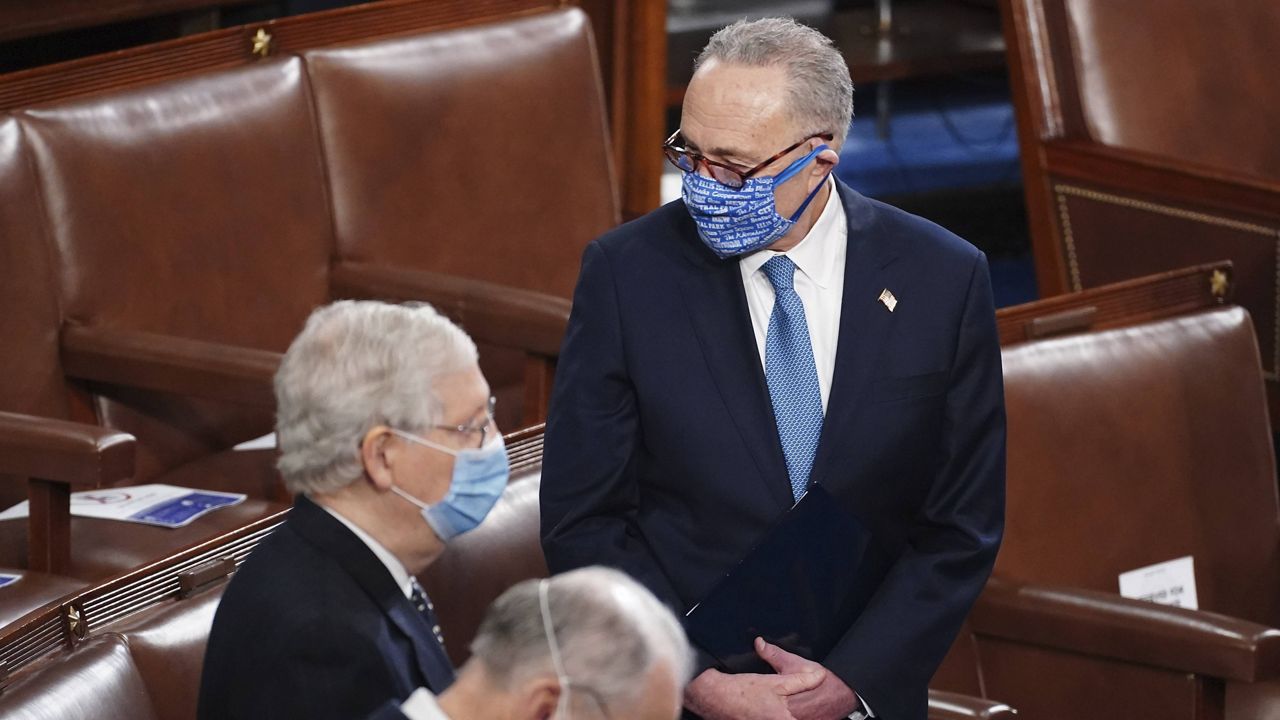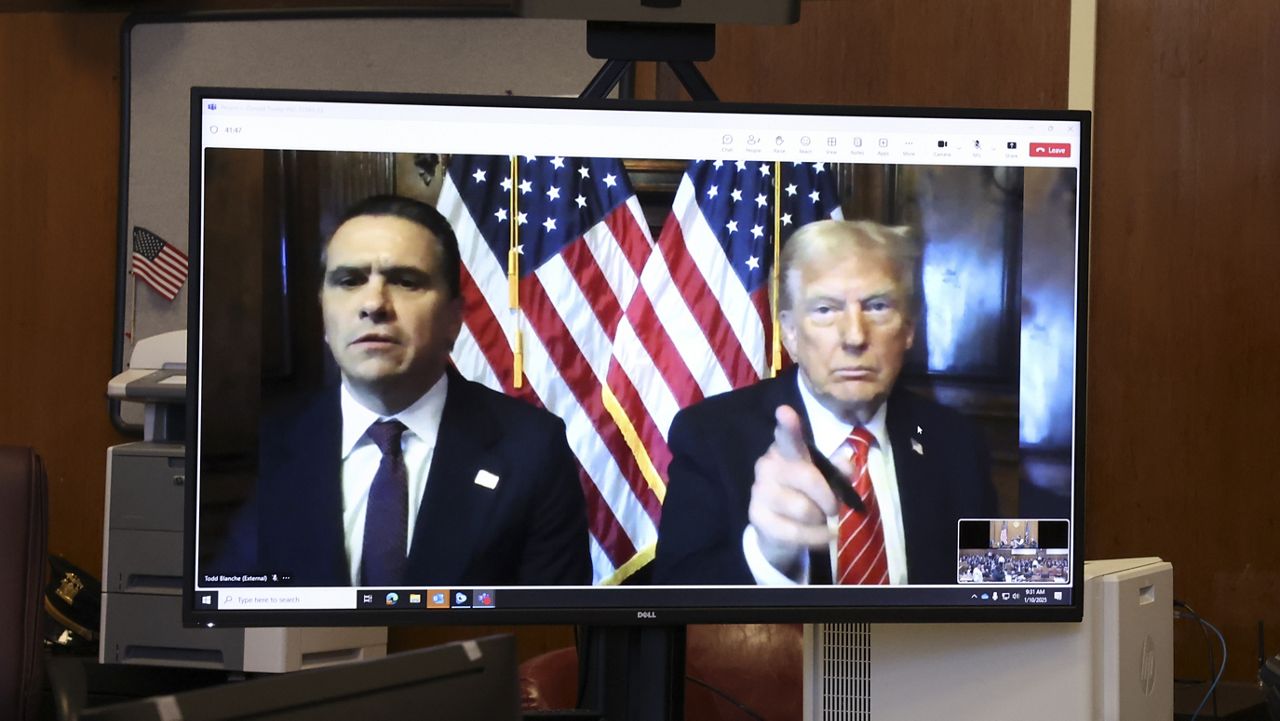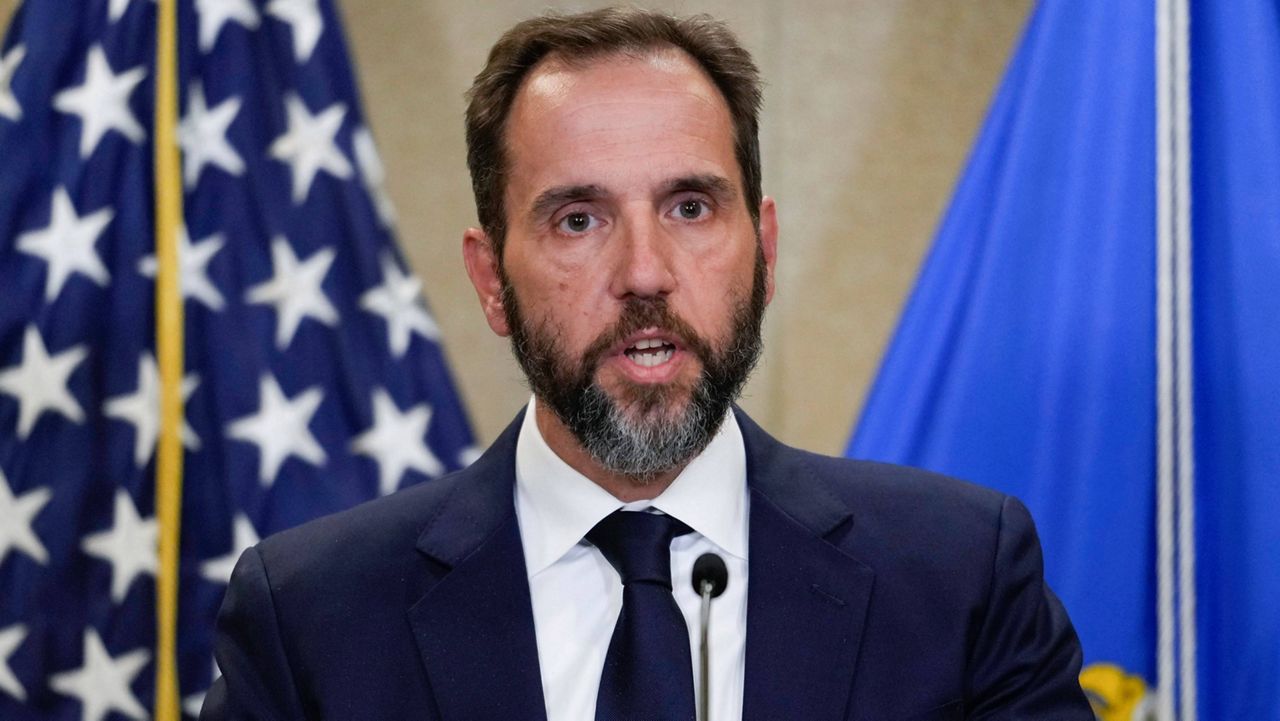There’s a new Senate in session, but it still has some major details to work out.
With a 50-50 split in the chamber, Majority Leader Chuck Schumer (D-NY) and Minority Leader Mitch McConnell (R-KY) must iron out a power-sharing agreement. They were in talks Tuesday but have yet to reach a deal.
It’s a rare situation – and one not made any easier with a looming impeachment trial for former President Donald Trump.
Here’s a closer look at why an agreement is needed, what’s at stake and how not yet having a pact in place is impacting the Senate.
Why is a power-sharing agreement necessary?
After Democrats Jon Ossoff and Raphael Warnock swept this month’s Georgia Senate runoffs, the makeup of the Senate is a 50-50 tie, requiring greater cooperation between Republican and Democratic leaders than usual. (Technically, Democrats hold 48 seats, but independents Bernie Sanders of Vermont and Angus King of Maine caucus with the Democrats.)
Because a Democrat, Kamala Harris, is now the vice president, Democrats hold the tiebreaker and are the majority party. They wield more power, but not quite as much as they would had they secured 51 Senate seats.
What might a power-sharing arrangement look like?
The model Schumer and McConnell seem to be focused on is 2001, the last time this happened. In that arrangement, negotiated by Republican Trent Lott of Mississippi and Democrat Tom Daschle of South Dakota, the GOP (the majority because Dick Cheney was the VP) held all committee chairs, giving it the power to set the agendas and control most committee staff and resources. But the parties had equal representation on each committee. If a vote on legislation ended in a tie, it still advanced to the full Senate, a deviation from the norm.
"On an organizing resolution, Leader Schumer expressed that the fairest, most reasonable and easiest path forward is to adopt the 2001 bipartisan agreement without extraneous changes from either side," a Schumer spokesman said Tuesday.
Where do talks stand?
Unclear. They’re at a stalemate.
"Our caucus believes that the fairest, easiest, and most bipartisan way to come to an organizing resolution is to enact the 2001 agreement that Senators Lott and Daschle came to in a bipartisan way back then," Schumer said Thursday. "Our caucus is strongly opposed to any extraneous provisions, and so we are going to keep working to try and get a bipartisan agreement."
What’s the holdup?
McConnell is concerned Democrats will try to kill the filibuster, which requires 60 votes to advance major legislation in the Senate. There is momentum from some within the party, especially the progressive wing, to do just that, which would allow for bills to pass with support from a simple majority.
As the leader of the minority party, McConnell obviously has reason to be concerned about that. However, other than in confirming Supreme Court picks, he was against the idea even when Republicans were in charge and resisted pressure from former President Donald Trump to ax the filibuster.
McConnell is using the power-sharing negotiations as leverage to coax a commitment out of Schumer to not target the filibuster.
“I believe the time is ripe to address this issue head on before the passions of one particular issue or another arise," McConnell wrote in an email to his GOP colleagues this week.
McConnell again Thursday threatened to delay an agreement on organizing the Senate until he secures a commitment.
“If the talk of unity and common ground is to have meaning, and certainly if the rules from 20 years ago are to be our guide, then I cannot imagine the Democratic leader would rather hold up the power-sharing agreement than simply affirm that his side won’t be breaking this standing rule of the Senate,” McConnell said.
Many Democrats, however, view McConnell’s efforts as an attempt to block Biden’s agenda.
Is there a real possibility the filibuster might been removed?
It’s unlikely. While Democrats could alter the Senate rules with a simple majority using the “nuclear option” — a rarely used but not unprecedented unilateral rules change — they still might need all 50 of their members and Harris to vote for it. Some more moderate members of the party have already indicated they don’t support the idea.
“The minority ought to have a voice in the Senate. I’ve always thought that,” Sen. Joe Manchin (D-WV) said earlier this month, according to The Wall Street Journal. “I will only operate in a bipartisan way.”
Schumer has not agreed to any changes one way or the other.
What happens in the meantime?
Until a power-sharing agreement is in place, the Senate will be in a sort of limbo. Schumer is now the majority leader, but new senators are not being assigned to committees, and committee ratios have not changed, leaving Republicans still running some of them for now. That could complicate the confirmations of some of Biden’s nominees for his Cabinet and other positions.
Whenever a power-sharing deal is reached, the full Senate must ratify it.
Ryan Chatelain - Digital Media Producer
Ryan Chatelain is a national news digital content producer for Spectrum News and is based in New York City. He has previously covered both news and sports for WFAN Sports Radio, CBS New York, Newsday, amNewYork and The Courier in his home state of Louisiana.







